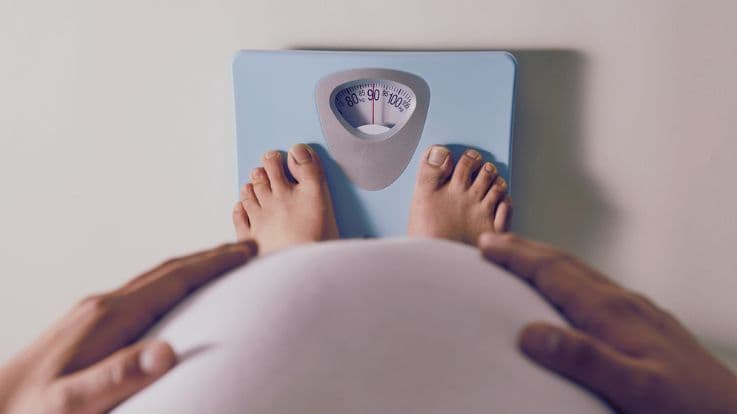Know How Excess Maternal Weigh ...
Know How Excess Maternal Weight In The First Trimester Affects The Fetus

Published: 02/04/25
Updated: 02/04/25
When a woman is carrying a baby in her womb, her health and well-being have a direct impact on the baby and this is something that we all know. Another important thing that we need to know is that the amount of weight that a woman gains during her pregnancy can influence her and her baby’s immediate as well as future health. Recent research has made this quite evident. Continue reading to know more.
Weight Gain During Pregnancy
As the pregnancy progresses, weight gain is inevitable and it varies from one person to another. According to the NHS, most pregnant women gain around 10 to 12.5 kgs during the course of their pregnancy, and a major part of this weight is gained towards the end of the second trimester, i.e. after the 20th week.
Weight gain in the first three months is usually minimal, around 0 to 5 pounds, however, some women may also gain excess weight during this period. While it is not that common, raising awareness about it is important owing to the recent findings that point towards a strong link between excess maternal weight gain in the first trimester and fetal fat accumulation.
You May Also Like To Read:
Link Between Maternal Weight Gain And Fetal Fat Accumulation
A News Release published by NIH in January 2025 has revealed that “Fetuses of pregnant people who gained excess weight in the first trimester of pregnancy show signs of excess fat distribution in the upper arm and in the abdomen”
Data from an earlier study of more than 2,600 singleton pregnancies was analyzed, which involved information on maternal weight before and during the course of pregnancy along with 3D ultrasound scans (up to five), taken throughout each pregnancy.
The data clearly showed that fetuses of women who had gained more than 2 kgs in the first trimester of their pregnancy had greater abdominal circumference and area. The fetal arm thickness was also greater as compared to fetuses of women with adequate weight gain in pregnancy, and this difference persisted throughout the pregnancy, even if the mothers did not have excessive weight gain in the second and third trimesters.
How Gestational Weight Gain Affects The Mother
Excessive gestational weight gain has also been associated with adverse maternal outcomes, including increased risks of various complications like hypertensive disorders (preeclampsia and eclampsia), gestational diabetes, labour, and delivery-related risks, breastfeeding difficulties, and post-pregnancy weight retention. The best possible way to avoid such complications is to manage your weight by eating healthy and staying active. This, however, should only be done with expert advice.
While weight gain is an important part of pregnancy, excessive gain—especially in the early months—may contribute to fetal fat accumulation. These insights highlight the importance of maintaining a balanced weight during pregnancy. Expecting mothers should consult healthcare professionals to ensure they follow a healthy weight gain trajectory for the best outcomes for both mother and baby.
Be the first to support
Be the first to share

